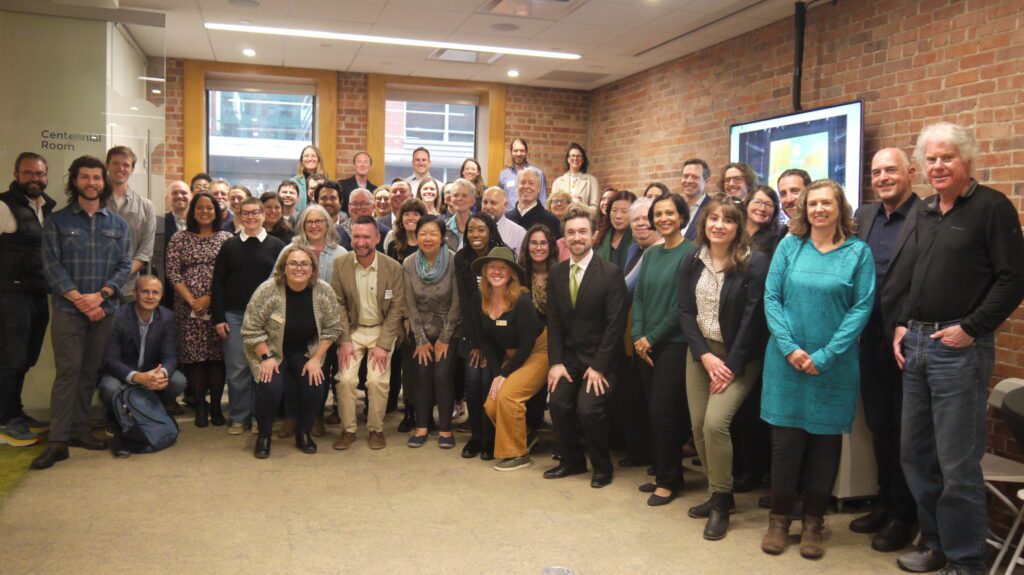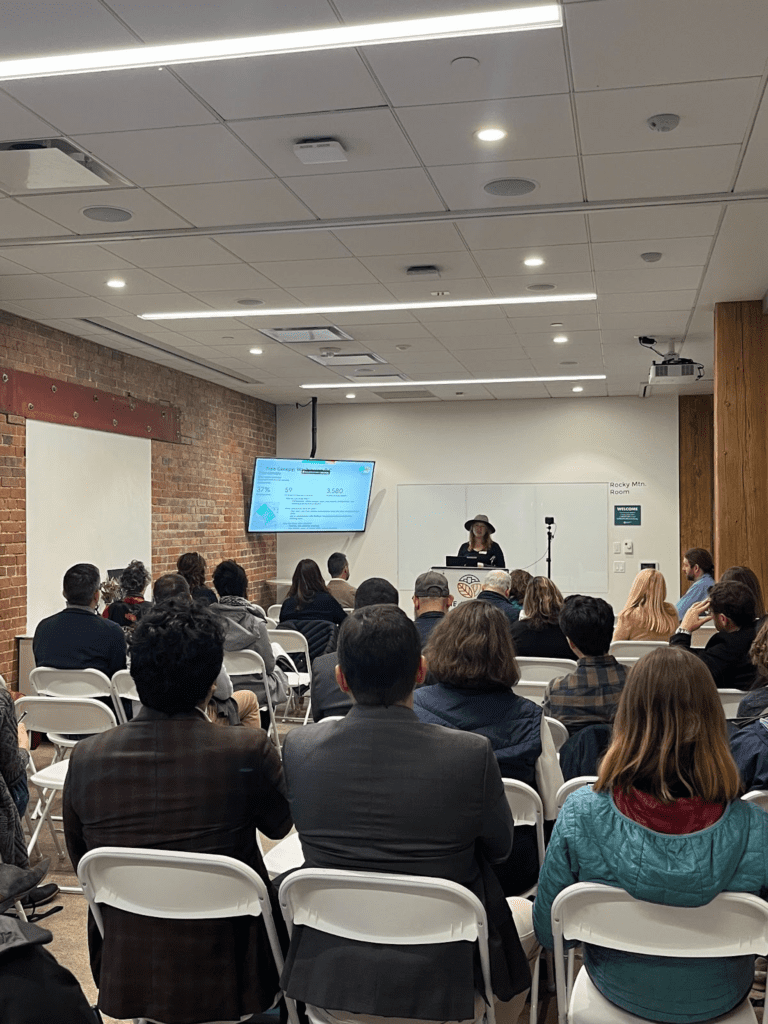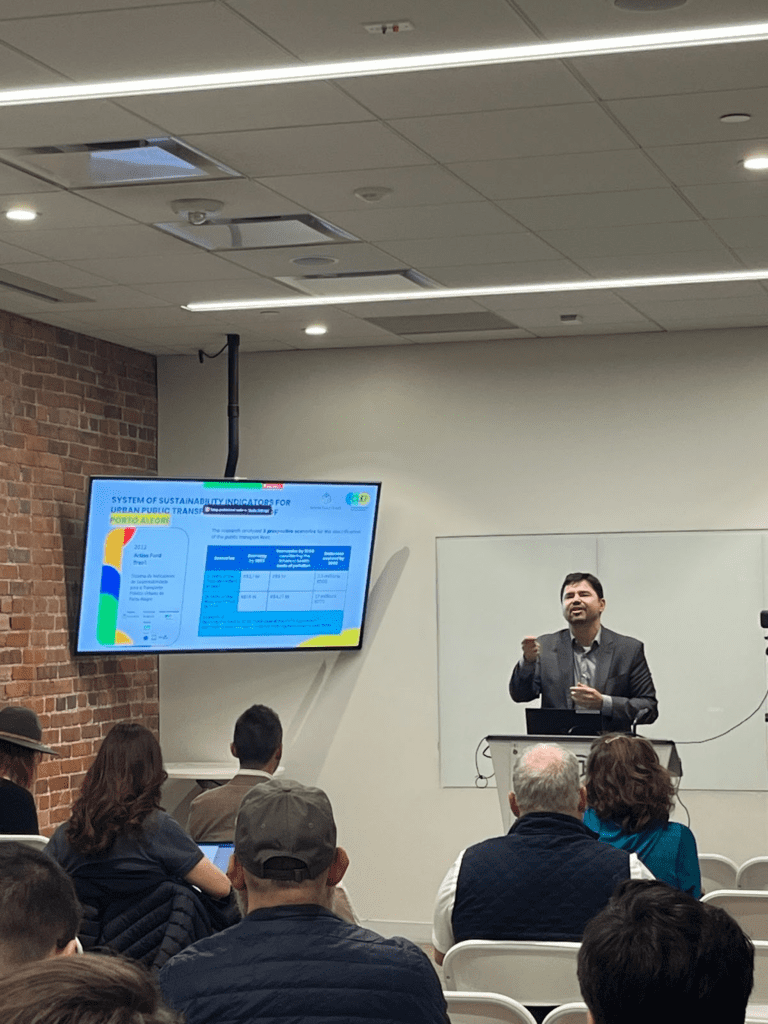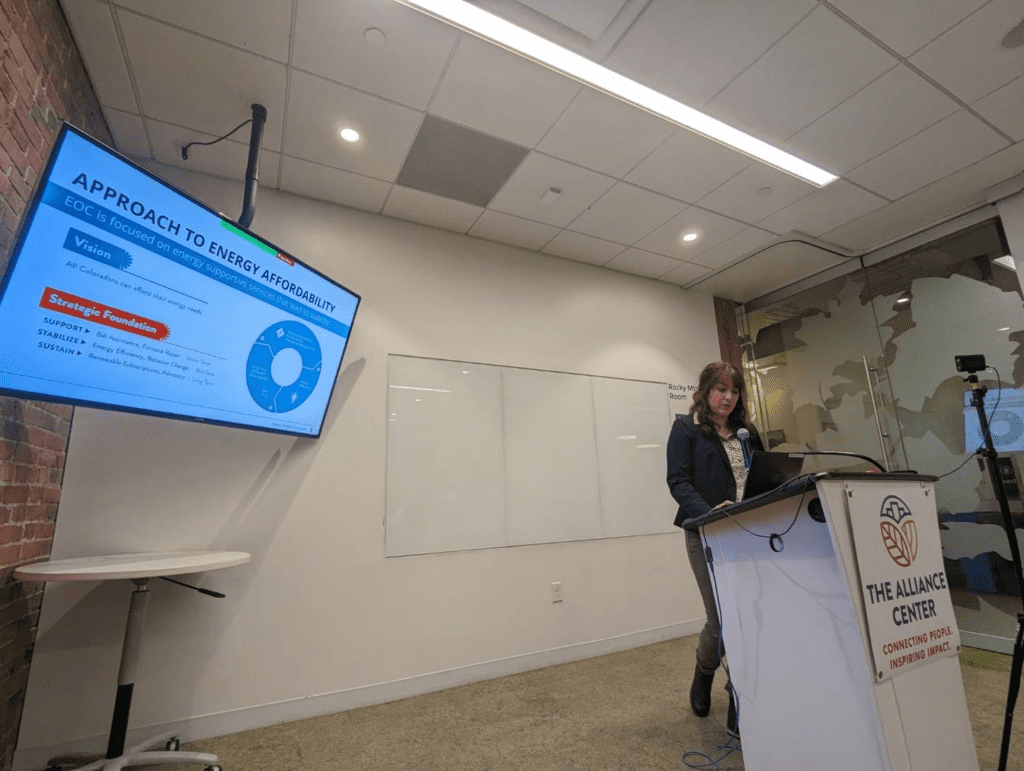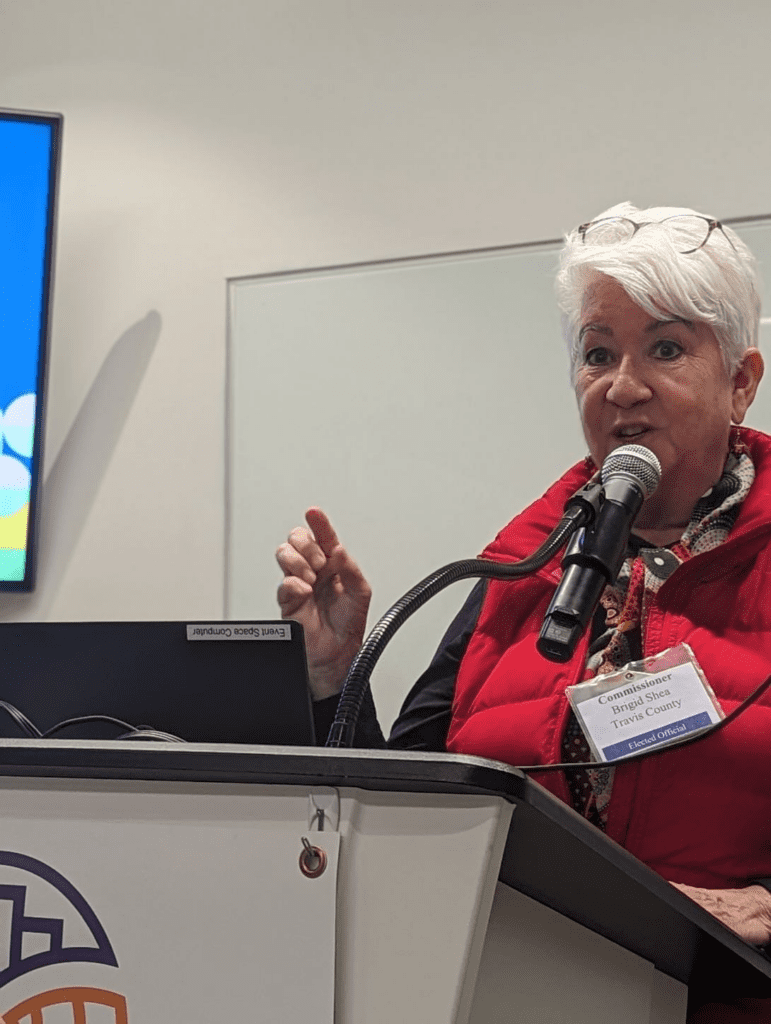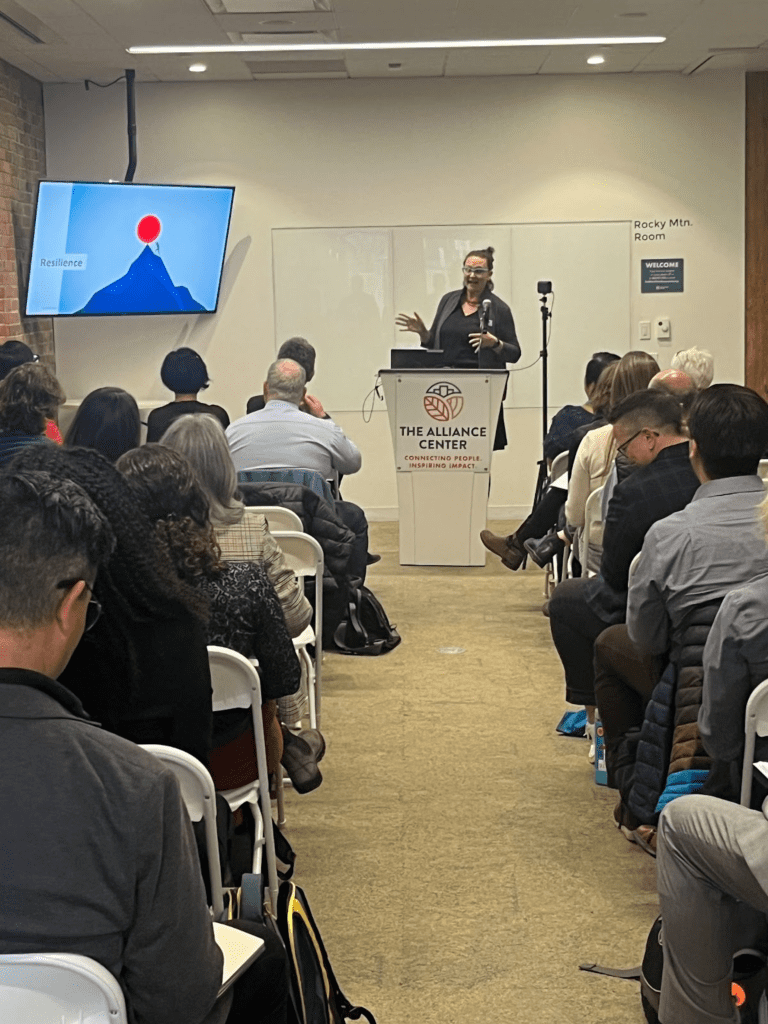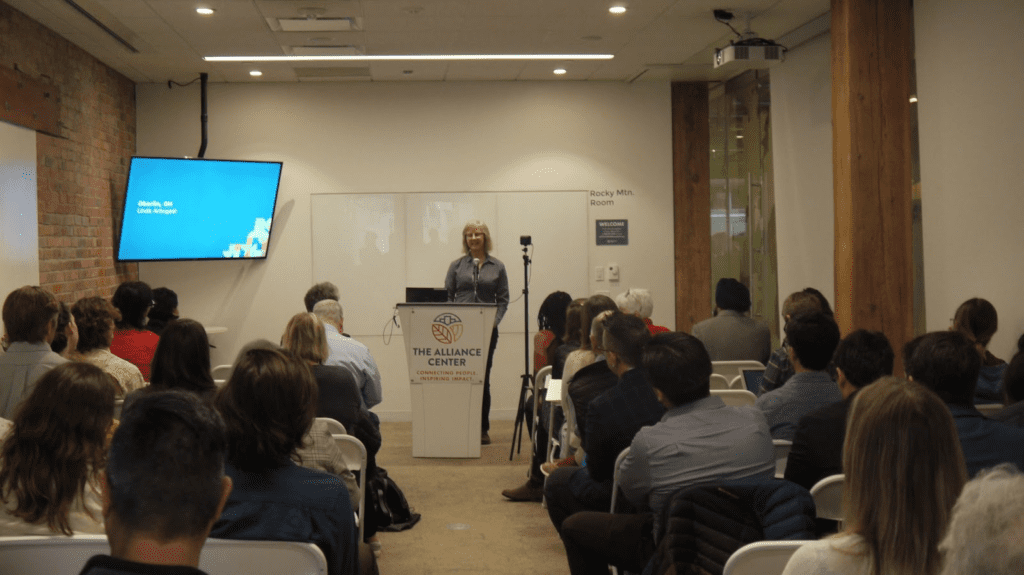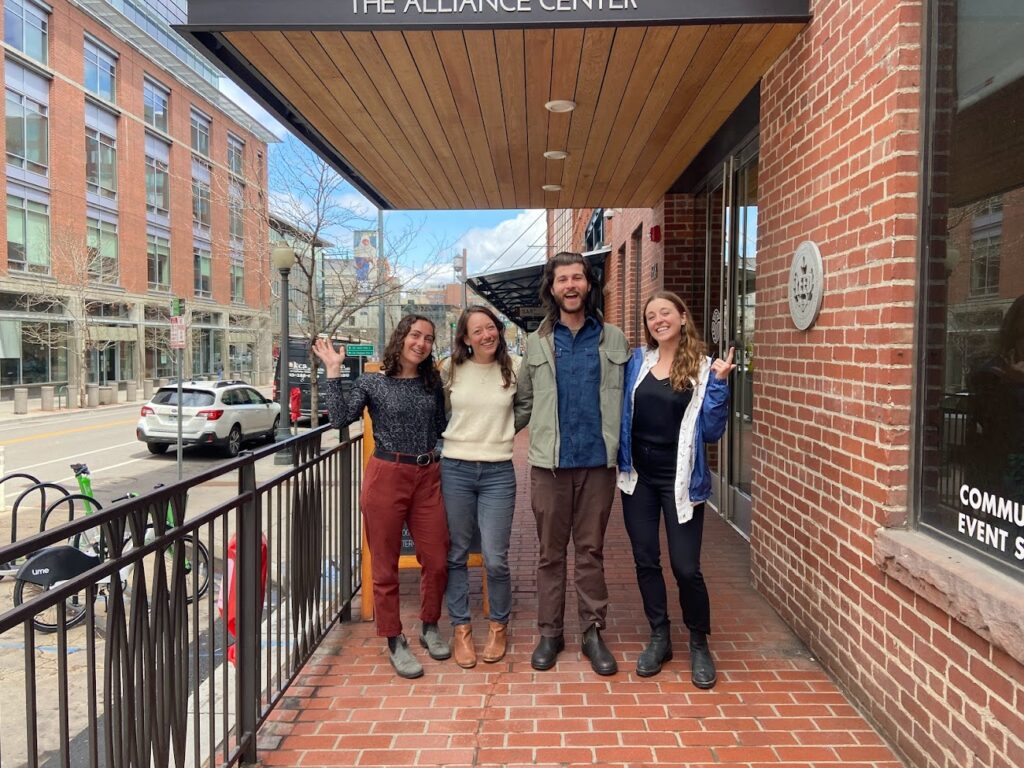ICLEI-Local Governments for Sustainability (ICLEI) members gathered before the Cities Summit of the Americas to explore projects centered around ICLEI’s five pathways: low emissions, nature-based, equitable, resilient, and circular. ICLEI members and staff from around the Americas shared their stories and experiences.
“We all know the nations of the world can’t solve these problems themselves,” comments Brigid Shea, Travis County Commissioner and ICLEI USA Board Chair. “There needs to be more emphasis on the clear goals of local governments. We need all hands on deck.”
A Carbon-Free Energy Future
A central focus of the ICLEI member meetup was building a carbon-free energy future. Innovative tools and groundbreaking projects from Brazil to Colorado demonstrated ideas for reducing carbon pollution, improving climate justice, and making it easier to track data.
Introduction to 24/7 Carbon-Free Energy and Google’s Environmental Insights Explorer
For local governments to track energy use at a close level, Eli Yewdall, Senior Program Officer at ICLEI USA, introduced 24/7 carbon-free energy accounting. Gathering data at this more granular level can help align accounting with the community’s needs, avoid a disconnect between nominal clean energy percentages and actual emissions, and ensure that accounting and incentives are matched with grid reliability.
ICLEI demonstrated Google’s Environmental Insights Explorer (EIE), a free online portal for local government staff seeking greenhouse gas emissions data of any community larger than 25,000 people. The portal can show building emissions, solar potential, transportation emissions, tree canopy coverage, average land surface temperature, and population density. Communities can use EIE data to assist with developing sustainability initiatives.
Sustainability Around the Americas: An ICLEI Offices Showcase
Building upon data-driven approaches, several ICLEI offices shared community-led projects focused on climate justice. Rodrigo Perpétuo, Executive Director of ICLEI South America, showcased several projects supported by the ICLEI Action Fund in the communities of Porto Alegre and Curitiba, Brazil. In Porto Alegre, micro-photovoltaic panels and biodigesters were installed at a school with the participation of students, faculty, and community members to improve energy reliability. In Curitiba, a community center in an underserved community also received photovoltaic panels, providing access to hot water for the first time in that area, and street lights to improve safety.
“These kinds of projects in Brazil are materializing what we understand as climate justice,” said Perpétuo. “In a small scale, but in a very inspirational way, we are bringing the concept of how to tackle climate justice in these small cities.”
ICLEI USA Action Fund Recipient: Healthy Homes Program
Energy Outreach Colorado (EOC), a nonprofit located in Denver, highlighted their efforts to make energy affordable for Coloradans through weatherization, indoor air quality testing, and home improvements. These programs make energy cheaper by improving efficiency and making the air cleaner inside people’s homes. Thanks to support from the ICLEI USA Action Fund, EOC will partner with Denver-area hospitals to create a weatherization prescription and provide a national model for equitable program development through its Healthy Homes Program.
Adaptation and Resilience to Climate Change
As the climate changes, local governments must reduce carbon pollution while strengthening community resilience to climate impacts through adaptation. ICLEI USA supports local governments with its climate resilience journey while navigating in the face of risk and uncertainty.

Transforming Emergency Response: Travis County, Texas
In Travis County, Texas, the local government has been improving its emergency notification system—a key component of planning community resilience in the face of more powerful climate-induced natural disasters. Travis County Commissioner Brigid Shea said, “Let’s skip the pointless debate on whether or not climate change is actually happening, and let’s focus on what we can do.” By conducting an audit and changing its database from landlines to mobile phones, Travis County has improved the reach of emergency notifications from 7% to more than 70% of the population.
Integrating Climate Communications into Public Engagement: City of Baltimore, Maryland
The City of Baltimore, Maryland has taken an approach grounded in creative communication methods to connect with residents. As the City upgraded its Climate Action Plan, staff focused on high-quality community engagement by using art and poetry. Specifically, staff illustrated the cost of taking no action versus the cost of taking action to inform community members of tradeoffs. “The most important stakeholder is our residents,” says Ava Richardson, Director of Sustainability. The City is also enhancing the climate literacy of its workforce to ensure that climate and sustainability are a part of everyone’s job.
Redefining Resilience: City of Ann Arbor, Michigan
Dr. Missy Stults, Sustainability and Innovations Director at the City of Ann Arbor, Michigan, explains that people often view resilience as a rubber band. “A rubber band can stretch, and it can bounce back,” she says. “Here’s the problem: society is changing, technology is changing, and the climate is changing. Bouncing back is not enough.” She explained how Ann Arbor has created ‘Resilience Hubs’ that are community-centered to support the residents who cannot bounce back from disasters. She says, “It’s not about the disaster; it’s about every single day making sure the community’s needs are met.” The Resilience Hubs distribute resources identified by residents and serve as a power source in the event of a grid shutdown.
Equity and a People-Centered Approach
A people-centered approach to climate action recognizes that vulnerable populations, such as low-income communities, indigenous peoples, and people of color, are often the most affected by environmental degradation and climate change impacts. To promote equity, policies and initiatives must prioritize the needs and perspectives of these communities and provide them with the resources and support necessary to build resilience and adapt to changing conditions.
Incorporating Local Organizations and Stakeholders in Climate Planning: ICLEI Canada
ICLEI Canada worked with local organizations and stakeholders to create two resources for equity in climate planning: Integrating Equity, Diversity and Inclusion into Municipal Climate Action (a more foundational source of guidance), and Equitable Climate Adaptation: Considerations for Local Governments (an action-oriented planning guide). One major lesson learned was that the timeline for climate planning processes often does not match the needs of community groups, so it was highly recommended to plan more time for healthy relationship-building with the community.
Improving Access to Urban Spaces: City of Hoboken, New Jersey
The City of Hoboken, New Jersey, is only one square mile in size with 60,000 residents. Yet, underserved communities below sea level are disproportionately impacted by climate change-induced flooding. The City has created resilience parks, or open spaces that can defend against flooding, as well as underground detention tanks to store and treat excess water and green infrastructure both above and below ground. They’ve also advocated at the state level to change the policy structure so that more people can be eligible for a community solar program that provides 25% energy cost savings per resident. Honorable Mayor Ravi Bhalla explains that their Community Solar Program “creates a space for some of our underserved populations to be a part of the conversation.”
Applying Non-Binary Thinking to Climate and Sustainable Initiatives: City of Austin, Texas
Austin, Texas has been a leader in incorporating equity as a core driver of climate planning. Katie Coyne, Environmental Officer and Assistant Director of the Watershed Protection Department, talked about the ways of thinking that have shaped this work. She explains that we can’t get trapped into binary thinking, like urban versus nature, Democratic versus Republican, or one choice versus another. We must push ourselves into nonbinary thinking or a mindset based on abundance rather than scarcity. She also focuses on the depth of relationships needed to create the Austin Climate Equity Plan. “Relationship building in this plan is one of the biggest impacts that was not recorded in the document itself,” she says.
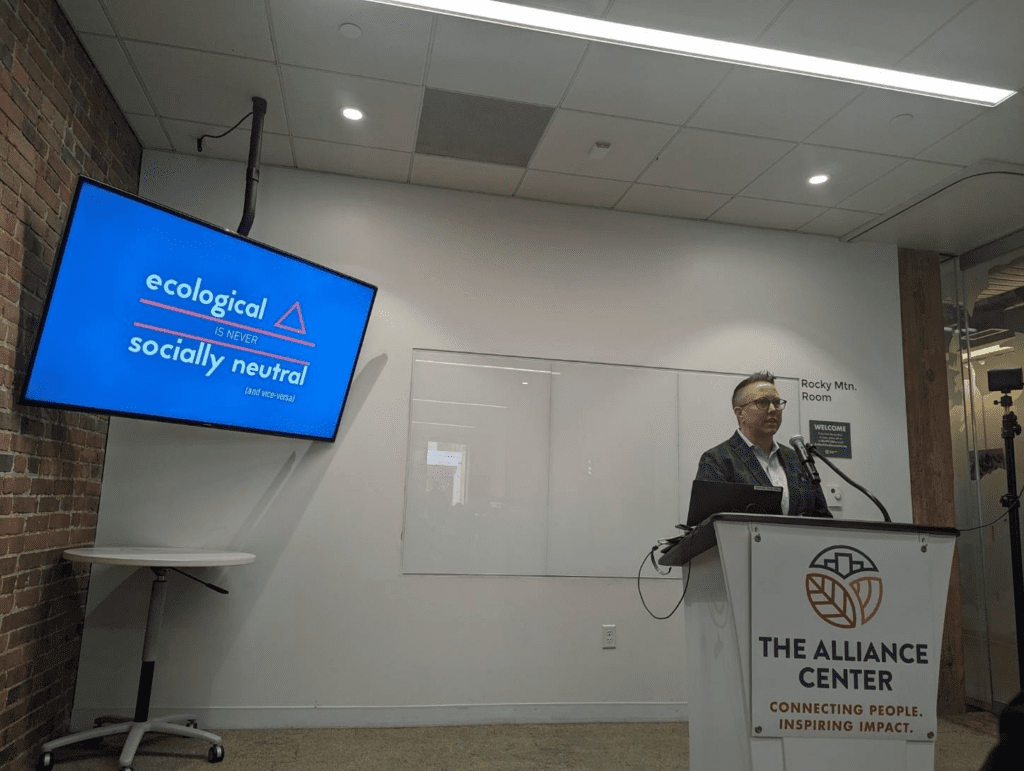
Building Climate Finance and Equitable Services: City of Oberlin, Ohio
In Oberlin, Ohio, the City and the college work closely together to implement climate and sustainability programs. To fund such initiatives, the City uses funds from the sale of renewable energy certificates derived from Oberlin’s renewable power supply to create the Sustainable Reserve Fund. The program is designed to offer environmental, social, and economic benefits to the City’s electric customers on a community-wide basis. The fund has supported a nonprofit that weatherizes homes, an electric vehicle car share program with locations convenient to lower-income areas, and a community composting program that delivers soil back to the community. While these programs are making progress, there’s always more work to be done. “Social equity isn’t a box you can check off,” says Linda Arbogast, Sustainability Coordinator.
Thank You to ICLEI Members for Advancing Climate Equity and Resilience
Considering equity and resilience in climate policy are key to the long-term success of community planning. We are thankful for the tools, ideas, and motivation shared by ICLEI members and regional offices and we are excited to support the future work of the ICLEI network.
A big thank you to our University of Colorado Boulder Masters of the Environment (MENV) interns, Audrey Wheeler, George Jutras, Naomi Hennefeld, and Margot Shift, who supported the event and will work on expanding ICLEI USA’s Equity and Adaptation First Steps Guide through their capstone.
